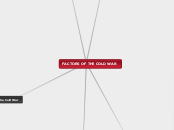The Columbian Exchange intertwined the various countries through the diffusion of people, ideas, and goods. Triangular Trade allowed the countries to trade with one another, thus causing an increase in participation. Trading Outposts were a way to stabilize and promote trade. Plantation Colonies were a mosh pit of industry, culture, and advancement. The Middle Passage allowed for an increase in the work force, though at the same time decreased the African population. The Commercial Revolution was a way to generate new profits due to the business from new goods that were being traded around the world. The Rise of Capitalism caused an increase in the ambition for trade. These topics allowed trade and connections to increase between the various countries through the interconnection of trade, thus promoting advancement.
Trading Posts were a stable way to uphold the trade emerging from new connections.
These establishments allowed for trade to be safer and more stabilized between various places. These also allowed for easier access to trade.
The Impact of Exploration and Colonization By: Hannah,Emma, and Kathryn
Middle Passage
The Middle Passage was the crossing from Africa to America with ships carrying slaves. The Middle Passage was a stage of Triangular Trade in which millions of slaves were transported from Africa. It was called The Middle Passage, because it was the middle section of the trade route taken by most ships.
15% of the African slaves died at sea, while in Africa, the mortality rate was even higher. This was due to the process of capturing and transporting people to the ships. The total number of deaths attributed to The Middle Passage voyage is estimated around two million.
In this Primary source, Olaudah Equiano, a freed slave, recalls his experience of The Middle Passage. This account allows the reader for more in depth explanation of the atmosphere, and the conditions on ships in The Middle Passage.
Traders from the Americas and Caribbean received the African slaves. European countries such as England, France, Netherlands, Portugal, Spain, and Sweden took part in this trade.
Commerical Revolution
Mercantilism is a vital part of the Commercial revolution and refers to the accumulation of gold for the mother country. After raw materials are taken from the New World back to the Old World they are processes where they are then sold for a substantial profit.
Through the Commercial Revolution there was a strong method of trade from the New World with the countries of the old. New goods were found from the Americas that became high demand in the eastern countries, such as pelts, foods, and other "exotic" materials. This allowed for people to thrive in business in all countries involved in this new trade.
The Commercial Revolution was the increase of market from
the trade brought from the New World.
Rise of Capitalism
Economic changes such as the rise of capitalism caused the middle class system to grow as more people were searching for new goods and products.
The Europeans referred to the people as capitalist if they marketers had a creation of wealth. The Europeans saw the people as capitalist because the marketers were risking money each time trade was occurring.
The rise of capitalism is based on the increase of trade and money of the middle class system. Rise of capitalism increased the trade between the citizens of Europe. The citizens began to crave more trade which related to America and Africa gaining trade deals between Europe.
Plantation Colonies
Because slave life was so harsh on these plantations, slaves often died without reproducing, thus contributing to the decrease in slave population. This decrease meant that Europeans were constantly demanding new slaves from Africa.
The Europeans constant need for slave labor to produce their own goods, meant that the trade interaction between America and Africa was constant.
The word plantation during the 17th century refers to the large farms that were the economical foundations of many American colonies. Plantation colonies peaked in the 18th century during the age of sugar plantations in the Caribbean.
Sugar plantation depended heavely on slave labor.
A plantation was an early method of colonization in which settlers would establish a permanent or semi-permanent colonial base. These plantations were often established to promote Western culture and Christianity among the nearby natives.
Trading Outpost
Triangular Trade
The Triangular Trade was based on a trading system that moved in the motion of a triangle by transporting and receiving goods from American, Europe, and Africa.
Agricultural products were sent from America to Europe. Europe manufactured products and sent. Africa sent slaves to America.
Columbian Exchange
This primary source is a letter from Christopher Columbus telling of his experience in the New World and his inter actions with the people and the new opportunities there.
These new technologies allowed for a new variety of materials to be used across the world. New diets were established that aided in nutrition. Animals were transferred from place to place, thus allowing people to harness them and use them for personal gain. Also due to the movement of people there were new ideas and cultures being spread to various societies. Not everything in the Exchange was good through, diseases were transferred from the different countries and killed numerous people in the receiving country.
The Columbian Exchange was the period of time when goods, such as foods, animals, people, and diseases, were transported between the New World and eastern countries.









